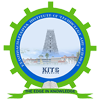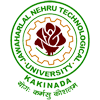IQAC
ABOUT IQAC
In pursuance of the National Action Plan of the National Assessment and Accreditation Council (NAAC), Bangalore, for performance evaluation, assessment and accreditation and quality up gradation of institutions of higher education, the NAAC proposes that every accredited institution should establish an Internal Quality Assurance Cell (IQAC) as a post accreditation quality sustenance measure. Since quality enhancement is a continuous process, the IQAC will become a part of an institution’s system and work towards realizing the goals of quality enhancement and sustenance. The prime task of the IQAC is to develop a system for conscious, consistent and catalytic improvement in the performance of institutions. The IQAC will make a significant and meaningful contribution in the post accreditation phase of institutions. During the post-accreditation period, the IQAC will channelize the efforts and measures of an institution towards academic excellence.
- To ensure systematic processes for enhancing and sustaining excellence in academic and administrative practices and to set up benchmarks for periodic evaluation, consequently to create quality culture in conscious and reliable manner.
- To promote innovative practices to continually improve the effectiveness of the teaching-learning experiences of the staff and students to inculcate value and outcome–based education system.
- To develop an Institutional data base and documentation of the various activities leading to quality improvement.
- To assess the annual progress, identification and removal of deficiencies in academic and administrative activities.
- To participate in sustainable quality management systems like, ISO, NIRF, NAAC, NBA etc, to enhance quality in education.
- To maintain hormonal relationship with stakeholders and to stimulate social
- To promote and stimulate quality and continuous improvement of standards to empower the students.
- To excel in education and improve, elevate, develop and deliver programmes and courses, which transcend the expectations and requirements of students.
- To upgrade the knowledge and skills of all our employees through a planned development in professional skills.
IQAC may be constituted in every institution under the Chairmanship of the Head of the institution with heads of important academic and administrative units and a few teachers and a few distinguished educationists and representatives of local management and stakeholders.
The composition of the IQAC may be as follows:
- Chairperson: Head of the Institution
- Teachers to represent all level (Three to eight)
- One member from the Management
- Few Senior administrative officers
- One nominee each from local society, Students and Alumni
- One nominee each from Employers /Industrialists/Stakeholders
- One of the senior teachers as the coordinator/Director of the IQAC
The composition of the IQAC will depend on the size and complexity of the institution, accordingly the representation of teachers may vary. It helps the institutions in planning and monitoring. IQAC also gives stakeholders or beneficiaries a cross-sectional participation in the institution’s quality enhancement activities. The guidelines given here are only indicative and will help the institutions for quality sustenance activities.
The IQAC should meet at least once in every semester. The quorum for the meeting shall be two-third of the total number of members. The agenda, minutes and Action Taken Reports are to be documented with official signatures and maintained electronically in a retrievable format.
- Arrangement for feedback and suggestions from students, parents and other stakeholders on quality-related institutional processes.
- Development and application of quality benchmarks/parameters for the various academic and administrative activities of the University.
- To monitor inter and intra institutional workshops, seminars on quality related themes and promotion of quality circles.
- Syllabus coverage should be checked at the end of every month and for any deviation/ lack of syllabus suitable measures should initiated
- Value Added Program should be planned and conducted in every semester for the students of all the streams in the college.
- Preparation of the Annual Quality Assurance Report (AQAR) of the Institution based on the quality parameters/assessment criteria developed by the relevant quality assurance bodies (NAAC, NBA etc.,) in the prescribed format.
- To ensure with the departments that they must allow the students to complete various training activities like Implant Training, Internship etc., during the semester break and after examination.
- Arrangement for feedback response from students, parents and other stakeholders on quality-related institutional processes
- Inviting suggestions and recommendations from students, parents and stakeholders on quality emphasizing institutional policies & processes
- Documentation of all the activities leading to quality improvement
- Acting as
a nodal agency of the institution for coordinating quality-related
activities, including adoption and dissemination of best practices
- Development
of quality culture in the institution
- Development
and application of quality benchmarks/parameters
- Facilitating
the creation of a learner-centric environment conducive to quality
education and faculty maturation to adopt the required knowledge and
technology for participatory teaching and learning process
- Arrangement
for feedback response from students, parents and other stakeholders on
quality-related institutional processes
- Dissemination
of information on various quality parameters of higher education
- Promotion
of research culture among staff and students
- Organization
of inter and intra institutional workshops, seminars on quality related
themes and promotion of quality circles
- Documentation
of the various programmes/activities leading to quality improvement
- Development
and maintenance of institutional database for the purpose of maintaining
/enhancing the institutional quality
- Preparation of the Annual Quality Assurance
Report (AQAR) as per guidelines and parameters of NAAC, to be submitted to
NAAC
- Acting as
a nodal agency of the institution for coordinating quality-related
activities, including adoption and dissemination of best practices
The IQAC coordinator plays an important role in ensuring the proper functioning of all the members. The coordinator of the IQAC may be a senior/competent person with experience and exposure in quality aspects. She/he may be a full-time functionary or, to start with, she/he may be a senior academic /administrator entrusted with the IQAC as an additional responsibility. Secretarial assistance may be facilitated by the administration. It is essential that the coordinator may have sound knowledge about the computer, data management and its various functions such as usage for effective communication.
The coordinator of the IQAC will have a major role in implementing these functions. The IQAC may derive major support from the already existing units and mechanisms that contribute to the functions listed above. The operational features and functions discussed so far are broad-based to facilitate institutions towards academic excellence and institutions may adapt them to their specific needs.
The institutions need to submit yearly the Annual Quality Assurance Report (AQAR) to NAAC by end of September every year positively. A functional Internal Quality Assurance Cell (IQAC) and timely submission of Annual Quality Assurance Reports (AQARs) are the Minimum Institutional Requirements (MIR) to volunteer for second, third or subsequent cycle’s accreditation. During the institutional visit the NAAC peer teams will interact with the IQACs to know the progress, functioning as well as quality sustenance initiatives undertaken by them.
The Annual Quality Assurance Report (AQAR) may be the part of the Annual Report. The AQAR shall be approved by the statutory bodies of the HEIs (such as Governing Council/ Executive Council/Board of Management) for the follow up action for necessary quality enhancement measures.



